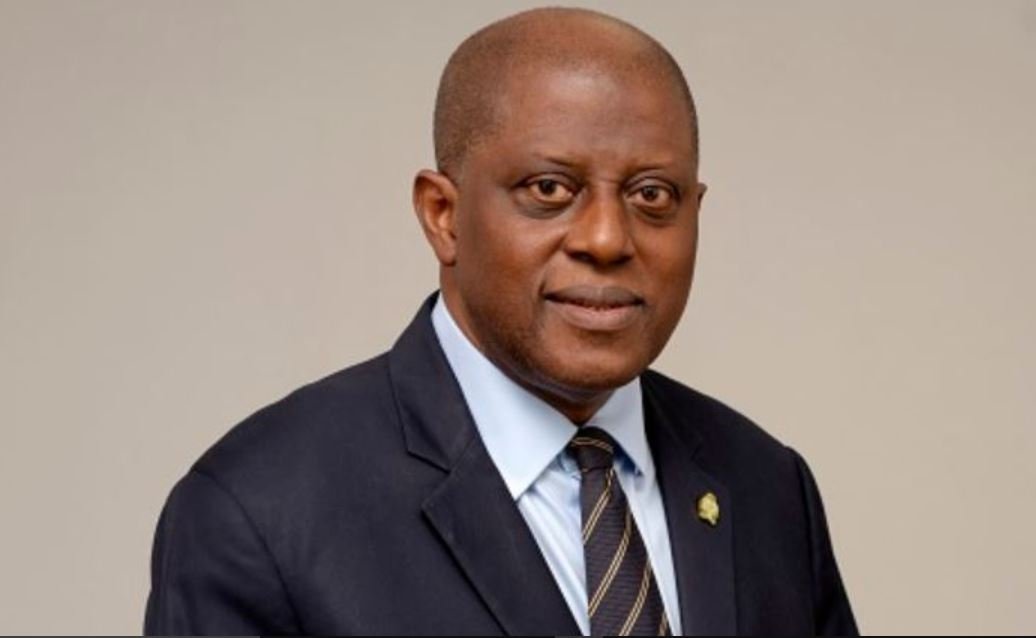Central Bank of Nigeria (CBN) Governor Olayemi Cardoso has expressed cautious optimism about Nigeria’s economic outlook, citing early signs of success in stabilizing the foreign exchange (FX) market and moderating inflation. The announcement came during a high-profile engagement with scholars from Harvard Kennedy School (HKS) at the CBN headquarters in Abuja.
CBN’s Policy Reforms Begin to Yield Results
Governor Cardoso, speaking to a delegation of 50 students from Harvard, MIT, and Stanford as part of the Harvard Africa Trek initiative, highlighted the gradual impact of recent monetary policy adjustments.
“We are beginning to see signs of progress in stabilizing the foreign exchange market and curbing inflation,” Cardoso stated. “These improvements reflect our commitment to resetting the Bank and strengthening trust in Nigeria’s financial system.”
The visit marked the first time a Harvard Africa Trek delegation engaged with the CBN, underscoring Nigeria’s growing relevance in global economic discussions.

Key Economic Indicators Show Improvement
Recent data supports Cardoso’s cautiously optimistic stance:
1. Foreign Exchange Market Stabilization
- The naira appreciated 0.37% in the official market, closing at **₦1,531.2/1∗∗(March25,2025)comparedto₦1,537/1 the previous week.
- The CBN has maintained interventions to reduce volatility, though the naira has fluctuated between ₦1,480/1and₦1,600/1 in recent weeks.
2. Inflation Moderation
- Nigeria’s inflation rate declined to 23.18% in February 2025, down from 24.1% in January.
- The National Bureau of Statistics (NBS) recently overhauled its Consumer Price Index (CPI) methodology for the first time in 16 years, adopting 2024 as the new reference year to better capture current economic realities.
3. Renewed Investor Confidence
- Senior executives from JP Morgan, Citi Bank, and the IMF have recently engaged with the CBN, signaling growing international interest.
- Cardoso emphasized: “These institutions base decisions on data, not sentiment. Their engagement reaffirms we are on the right path.”
CBN’s Strategic Focus: Policy-Oriented Solutions
Cardoso, an HKS alumnus and the first African elected to the HKS Alumni Board of Directors, reiterated the Bank’s commitment to thought leadership and data-driven policymaking.
“We are resetting the CBN to be a hub for policy innovation,” he said. “The exposure from institutions like Harvard is invaluable, and we see this as an opportunity to build long-term alliances.”
The Harvard delegation, led by Sheffy Kolade, commended the CBN for its engagement with future global leaders. The Africa Trek initiative facilitates discussions on governance, economic development, and the strategic role of central banks in Africa’s growth.
Challenges Remain Despite Progress
While the CBN’s efforts are showing early results, challenges persist:
- FX Volatility: The naira remains vulnerable to global market shifts and domestic demand pressures.
- Inflation Pressures: Despite the slight decline, inflation remains high, driven by food prices, energy costs, and structural bottlenecks.
- Policy Implementation Risks: Sustaining reforms requires coordination with fiscal authorities and private sector stakeholders.
Market Reactions and Analyst Perspectives
Financial experts have weighed in on the CBN’s latest developments:
✔ Optimistic View: Some analysts see the inflation dip and naira appreciation as early signs of policy effectiveness.
✔ Cautious View: Others warn that structural reforms—such as boosting local production and reducing import dependency—are still needed for long-term stability.
What’s Next for Nigeria’s Economy?
The CBN’s next steps will likely focus on:
- Strengthening FX Liquidity: Through continued interventions and attracting foreign investment.
- Further Inflation Control: Tightening monetary policy if price pressures resurge.
- Engaging Global Partners: Leveraging international alliances for economic insights and investment.
A Delicate Balance
Governor Cardoso’s remarks reflect a measured confidence in Nigeria’s economic trajectory. While FX stability and inflation moderation are positive signs, sustaining progress will require consistent policy execution, fiscal collaboration, and private sector confidence.
Read also: “2027 Showdown: SDP Chairman Shehu Gabam Vows to Unseat Tinubu, Says APC’s Days Are Numbered”
As Nigeria navigates these challenges, the CBN’s role as a stabilizing force remains critical. The engagement with Harvard’s future leaders signals a forward-looking approach—one that blends global best practices with local economic realities.